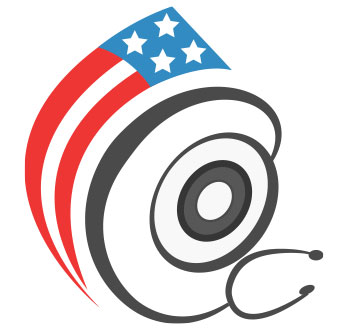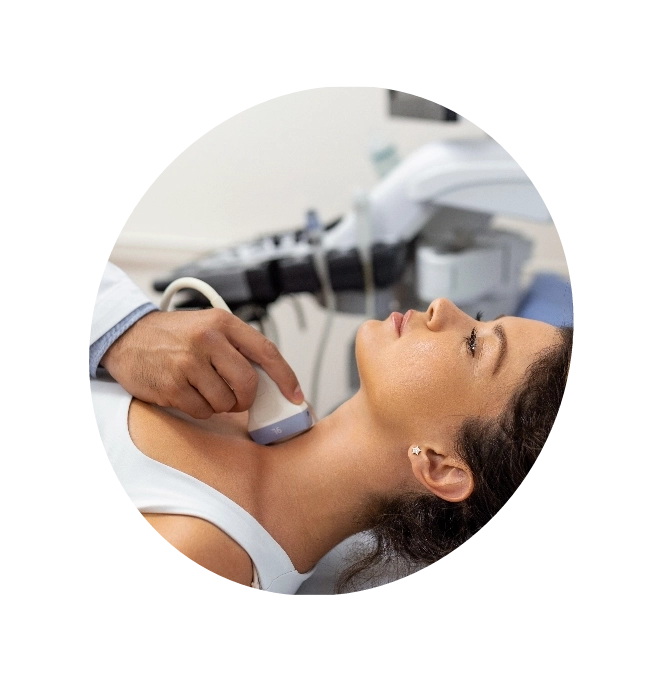What is Hypothyroidism??
Your thyroid is a butterfly-shaped gland located at the base of your neck, just below your Adam’s apple. Although it weighs less than an ounce, the thyroid gland has an enormous effect on your health. All aspects of your metabolism, from the rate at which your heart beats to how quickly you burn calories, are regulated by thyroid hormones.
As long as your thyroid releases the proper amounts of these hormones, your system functions normally. But sometimes your thyroid doesn’t produce enough hormones, upsetting the balance of chemical reactions in your body. This condition is known as hypothyroidism or underactive thyroid disease.
Women, especially those older than 40, are more likely to have an underactive thyroid than men. By age 60, as many as 17 percent of American women may have hypothyroidism. The condition seldom causes symptoms in the early stages, but over time, untreated hypothyroidism can cause a number of health problems.
The good news is that thyroid function tests have improved considerably in recent years, and early diagnosis is easier. In addition, treatment with synthetic thyroid hormone is usually simple and effective once the proper dosage is established. Natural treatment options also exist.
Signs and Symptoms of Hypothyroidism
The signs and symptoms of hypothyroidism vary widely, depending on the severity of the hormone deficiency. Usually, any difficulties you face don’t arise instantly, but gradually, over a course of years.
Initially, you may have difficulty recognizing some of the symptoms such as exhaustion and slowness. You may think it is just a side effect of age. But as your metabolism continues to slow, you may develop more obvious signs and symptoms, including:
- Increased sensitivity to cold.
- Constipation.
- Pale, dry skin.
- A puffy face.
- Hoarse voice.
- An elevated blood cholesterol level.
- Unexplained weight gain. Many people attribute their weight gain to an underactive thyroid, but this is true only in a few cases. Hypothyroidism will rarely cause you to gain more than 10 to 20 pounds most of which is fluid.
- Muscle aches, tenderness, and stiffness, especially in your shoulders and hips.
- Pain and stiffness in your joints and swelling in your knees or the small joints in your hands and feet.
- Muscle weakness, especially in your lower extremities.
- Heavier than normal menstrual periods.
- Depression.
When hypothyroidism isn’t treated, symptoms can gradually become more severe. Constant stimulation of your thyroid to release more hormones may lead to an enlarged thyroid (goiter). Besides, you may experience forgetfulness, sluggish cognitive processes, or even depression as a side effect.
Myxedema, which is a severe form of hypothyroidism, is rare but it can be life-threatening if it occurs. Symptoms include drowsiness and intense intolerance to colds followed by profound lethargy and unconsciousness. In some cases, myxedema can be fatal.
Hypothyroidism in Children and Teens
Hypothyroidism isn’t just something that only middle-aged & older women face. In fact, it can affect people of any age group, from infants to teenagers. Initially, babies born without a thyroid gland or with a gland that doesn’t work properly may have few signs and symptoms. Issues in newborns can encompass:
- Yellowing of the skin and whites of the eyes (jaundice). In most cases, this occurs when a baby’s liver can’t metabolize a molecule called bilirubin, which normally forms when the body recycles old or damaged red blood cells.
- Noisy breathing.
- A large, protruding tongue.
As the infection advances, young babies might find it difficult to nurse and could possibly fail to thrive and grow as expected. They may also have:
- Rough, dry skin
- Constipation
- Poor muscle tone
- Excessive sleepiness
Left untreated, even mild hypothyroidism in infants can lead to severe physical and mental retardation.
In general, children and teens who develop hypothyroidism have the same signs and symptoms as adults do, but they may also experience:
- Poor growth, resulting in short stature
- Delayed development of permanent teeth
- Delayed puberty
- Difficulty in school
Asthma Management
Because hypothyroidism is more prevalent in older women, some endocrinologists recommend that women aged 60 and older be screened for the disorder during routine annual physical examinations. Some doctors also recommend that pregnant women be tested for hypothyroidism.
In general, your doctor may test for an underactive thyroid if you’re feeling increasingly tired or sluggish, have dry skin, constipation, and a hoarse voice, or have had previous thyroid problems or goiter.
Diagnosis of hypothyroidism is based on your symptoms and the results of blood tests that measure levels of TSH and sometimes the levels of the thyroid hormone thyroxine. Low levels of thyroxine and high levels of TSH indicate an underactive thyroid. That’s because your pituitary produces more TSH in an effort to stimulate your thyroid gland into producing more thyroid hormone.
Historically, symptoms of hypothyroidism were left undetected until they had become quite advanced. But by using the sensitive TSH test, doctors are able to diagnose thyroid disorders much earlier often before you ever experience symptoms. Since the TSH screen is considered to be the most reliable indicator for thyroid health, many physicians will start off with it and proceed to checks of thyroid hormone if deemed necessary. TSH tests also play an important role in managing hypothyroidism. They help your doctor determine the right dosage of medication, both initially and over time.
Moreover, TSH tests can be used to detect subclinical hypothyroidism, a health condition that typically does not have any physical indications. In this condition, you have normal blood levels of T-3 and T-4, but higher than normal levels of TSH.
Treating Hypothyroidism
Standard treatment for an underactive thyroid involves daily use of the synthetic thyroid hormone levothyroxine (Levothroid, Synthroid). The oral medication restores adequate hormone levels, shifting your body back into normal gear.
Soon after starting treatment, you’ll notice that you’re feeling less fatigued. The medication also gradually lowers cholesterol levels elevated by the disease and may reverse any weight gain. Levothyroxine treatment often continues for an extended period of time, but since your required dosage may change over time, it is recommended to get your TSH level checked every 12 months or so.
Your doctor usually tests your TSH levels after two to three months to figure out the initial correct dosage of levothyroxine. Excessive amounts of the hormone can accelerate bone loss, which may make osteoporosis worse or add to your risk of this disease.
If you have coronary artery disease or severe hypothyroidism, your doctor may start treatment with a smaller amount of medication and gradually increase the dosage. Progressive hormone replacement allows your heart to adjust to the increase in metabolism.
Levothyroxine causes virtually no side effects when used at the appropriate dose and is relatively inexpensive. If you change brands, let your doctor know to ensure you’re still receiving the right dosage. Also, don’t skip doses or stop taking the drug because you’re feeling better. By not managing your hypothyroidism, the symptoms will start to come back. People with hypothyroidism need to take medication for the rest of their lives.
Precaution while Taking Levothyroxine
Certain medications, supplements, and even some foods may affect your ability to absorb levothyroxine. Talk to your doctor if you eat large amounts of soy products or a high-fiber diet or you take any of the following:
If you have subclinical hypothyroidism, discuss treatment with your doctor. For a relatively low level of TSH, you probably won’t benefit from thyroid hormone therapy, and treatment could even be harmful. On the other hand, for a higher TSH level, thyroid hormones may improve your cholesterol level, the pumping ability of your heart, or your energy level

